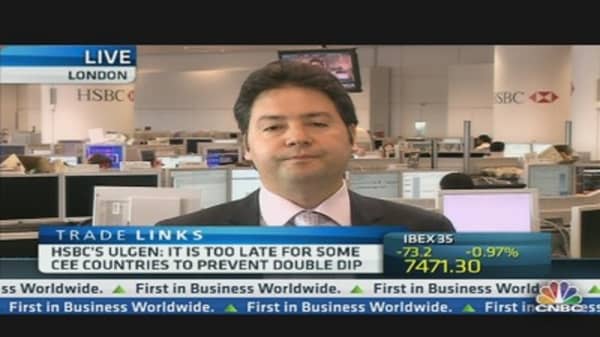Russia’s entry into the World Trade Organisation (WTO) is good news but investors shouldn’t expect miracles straight away, Murat Ulgen, chief economist for Central & Eastern Europe and Sub-Saharan Africa at HSBC, told CNBC.
“Don’t expect anything major to happen overnight, it’s a long term process,” Ulgen said on Wednesday.
Russia’s entry into the WTOmeans its export and import duties will have to be cut with a transition period of three to five years, monetary barriers will be reduced, and the investment environment will be improved, Ulgen said.
“Russia also aims to increase its World Bank ranking of countries that are best to do business with, so they have to improve their business climate,” Ulgen said. Russia currently holds the 120th spot on the World Bank list and critics of the country accuse the government of crony capitalism and corruption that stifle foreign corruption.
Russia’s $1.9 trillion economy is currently the world’s ninth-largest and the country holds one of the world’s largest natural gas and oil reserves. Its output is expected to exceed $2 trillion, according to a recent World Bank report.
Inflation in Russia at the moment is at a two decade low, inequality has been declining and consumption levels of low-income households have improved. In the meantime, while average public debt levels in advanced economies exceeded 100 percent of GDP in 2011, Russia’s public debt was no more than 10 percent of GDP, the World Bank reports.
WTO Director General Pascal Lamy told CNBC in an interview on Tuesday that the accession of Russia into the WTO could further boost opportunities for foreign investors, as they would start perceiving the country as less risky.
“Joining the WTOfor a country is sort of getting a quality label which investors worldwide usually see as a reduction in risk premium,” Lamy said.
When President Vladimir Putin assumed office in June he vowed to make Russia friendlier to foreign investors, and increase investment from its current level of 20 percent of GDP to 27 percent by 2018.
Billionaire investor Jim Rogers told CNBC Asia’s “Squawk Box” on Wednesday that he is also starting to look at Russia as a friendlier place to invest. “I am not an investor there yet, but I am starting to consider it for the first time in my life,” Rogers said.
By Liza Jansen, special contributor for CNBC.com, twitter: @lizajansen



